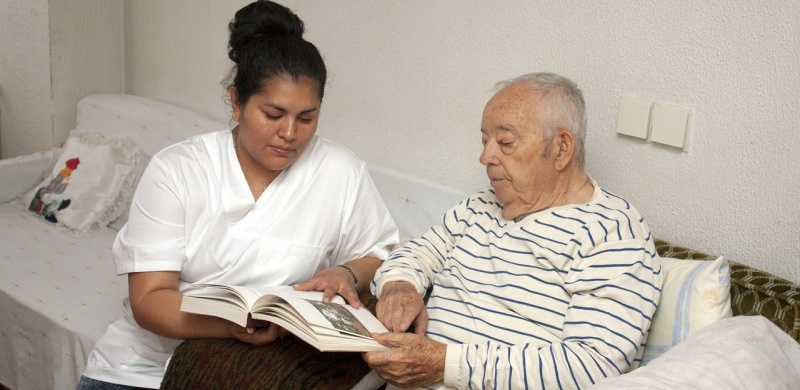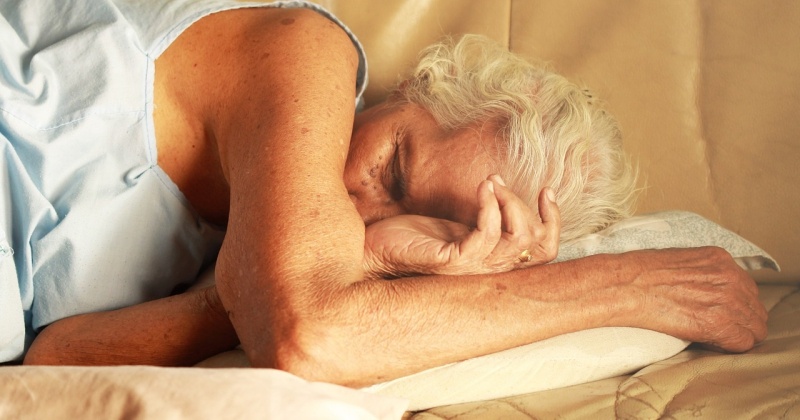The holidays are here and everyone is merry. Oh wait, maybe everyone isn’t merry! Seasonal depression is very common in all age groups, but depression in seniors is associated with increased falls and falls with injury.
Recognize the Signs of SAD Senior Residents During the Holidays
Topics: Patient Care
2 Simple Steps to More Effective Staffing by Acuity
In a report by the OIG, in 10 sample states, inadequate staffing levels were identified as one of the major problems in nursing homes. This problem is nothing new, and it's no secret among assisted living communities. The real secret seems to be how to make sure you have adequate staffing to reduce adverse events and fall-related injuries.
Topics: Administration, Patient Care
Best Practices for Treating Alzheimer's Disease Non-Medically
Many assisted living communities have adopted Alzheimer's programming that helps manage residents' behaviors without using antipsychotic medications. However, it takes time to develop a successful treatment program, and you'll probably have as many failures as successes at the outset. In addition, not relying on these drugs means residents may become agitated more easily. This can be very stressful and distressing for your nursing staff to deal with.
Topics: Patient Care
In long-term and post-acute care communities, hiring good nurses is only one step towards success. The challenge is often keeping great caregivers once you have them.
High staff turnover is a frustrating and costly reality for many senior living communities. Not only does it cost you time and money to train and retrain staff as they come and go, but a lack of consistency in nurses and caregivers can make residents and their families — and even other staff — feel uneasy.
For these reasons, keeping your staff from leaving should be a priority. But if you’re already offering them good pay and benefits, what else can you do?
Topics: Administration, Patient Care
3 Things Your Nurses Need to Provide Better Senior Care
Though any nursing job takes skill and compassion, the long-term care sector often has the most fragile patients—and therefore, one of the most challenging assignments. The nurses at ALFs, SNFs, and CCRCs in particular need to be on top of their game so they can help prevent adverse events like falls and be responsive and calm when incidents occur.
You may hire the best nurses, but this isn’t always enough for high-need populations. What can you do as an organization to help them improve the quality of their senior care each day?
Topics: Patient Care
Better Ways to Care for Residents with Alzheimer's
In a 48-week study, an open-label, flexible dose of risperidone was administered for 16 weeks to 180 patients with a diagnosis of Alzheimer’s dementia with agitation and/or aggression. The patients in the study had a mean age of 79 years at baseline. Patients were moderately impaired with a mean mini mental state exam of 14.
Per Anjali Patel, D.O., “I think the clinical impact we see here is that for patients with hallucinations and particularly auditory hallucinations, antipsychotic discontinuation should be done very, very cautiously because they do have a very high risk of relapse. Close monitoring will be necessary and antipsychotic medications promptly reinstated if relapse occurs.” The risk for relapse was particularly high when the hallucinations were primarily auditory. In fact, visual hallucinations were not predictive of relapse.
Topics: Patient Care
Top 5 Things Families Look for When Shopping for an LTC
You probably have a number of prospective residents and their families touring your assisted living or skilled nursing community on a regular basis. Although many will walk through, only some will ultimately choose your community.
If you’re looking to recruit more residents, look at your community with the eyes of an outsider. Sometimes they will see things that deter them that you may not have noticed. Here are the five most important things families will be observing during their visit.
Topics: Administration, Patient Care
The Hidden Role of Sleep Hygiene in Resident Falls
More and more research and investigation has revealed the great need for quality sleep in the elderly. Evidence has shown that the outcomes of better quality sleep may encourage better healing, reduce falls, and reduce use of psychoactive medications—ultimately improving behaviors and psychosocial well-being.
Topics: Risk Management, Patient Care
How to Spot and Prevent Sepsis at Your SNFs and ALFs
It intrigues me that someone like Muhammed Ali, who was highly respected for his contributions to the boxing world and his philanthropism, could succumb to septic shock! As we educate our caregivers on the importance of early detection and prompt medical treatment, this is a good reminder that even with the highest level of care, an elderly, compromised body is at risk. None of our residents is protected from sepsis—there is no immunization, only early detection and prompt treatment.
Topics: Quality Assurance, Patient Care
The title of this article is more than a little audacious and presumptuous, so let me simplify. The following is what I have learned from the best providers in the industry. You know who they are. You know the teams that run them. You know their leaders.
Topics: Administration, Patient Care










